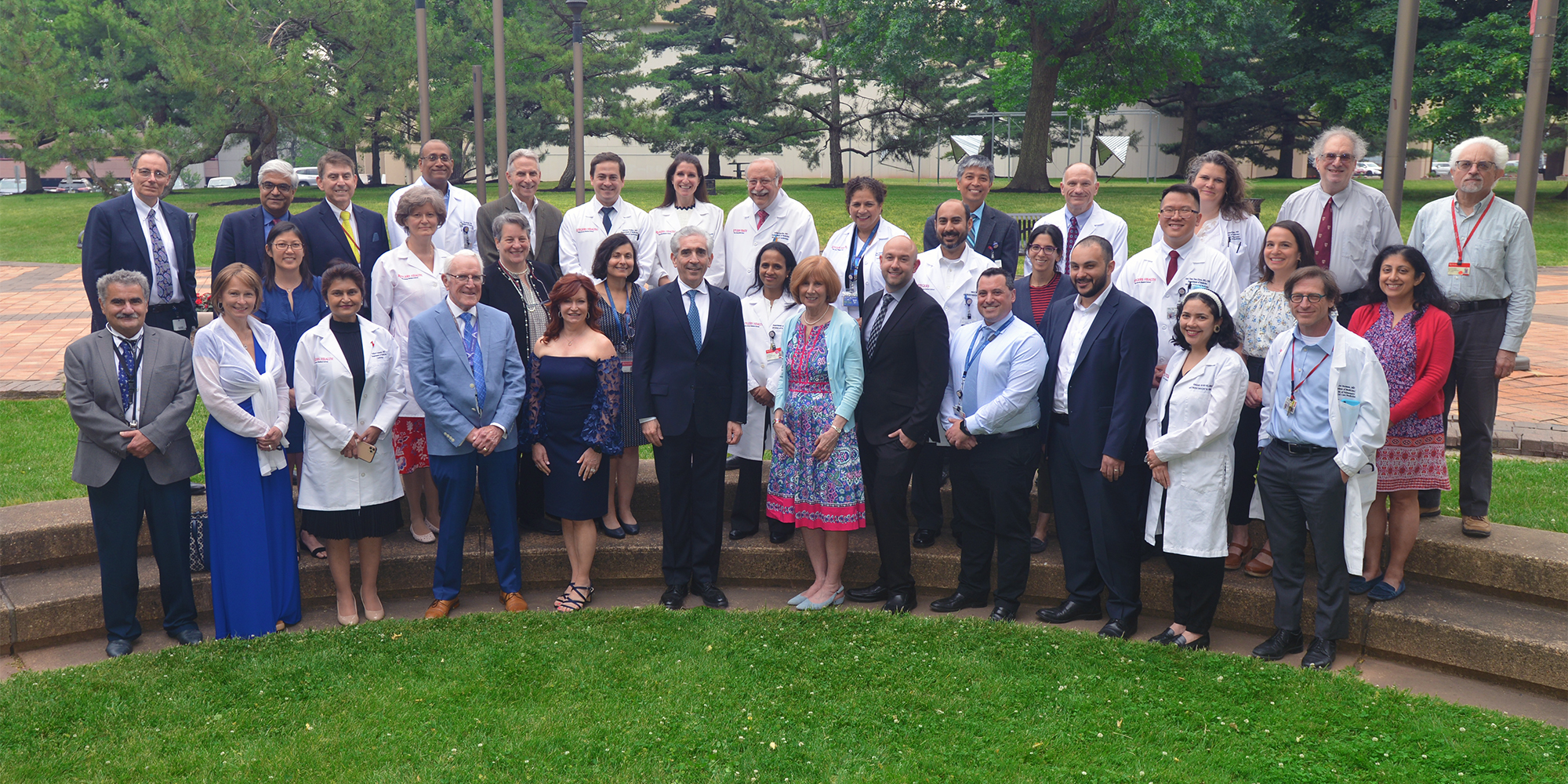Faculty Research Achievements
Faculty Research Achievement

Quality of Research
The Department of Medicine of Rutgers New Jersey Medical School is a principal partner of the Rutgers Biomedical Health Sciences (RBHS), which was created in 2013 and serves as the umbrella organization for eight schools, four centers and institutes, and a behavioral health network. Extramural research awards in RBHS total in the hundreds of millions and increase every year. Find more on the scope of research at RBHS at https://rbhs.rutgers.edu/research.
The Department of Medicine has received greater than 20 million dollars annually since 2013. Areas of research excellence include inflammation and infectious disease, heart disease and hypertension, COPD, oncology, liver transplant, and diabetes. In addition, there is ongoing work in health disparities, health-related behaviors, and population health. Members of the Department publish in high impact journals and are involved in multiple collaborative efforts across the institution, country and internationally.
In 2023, we will be implementing a new program to restructure and improve mentorship and education in research and QA/QI, with the goal to enhance quality of scholarly output and publications in high impact journals. We organize peer to peer research workshops for residents every summer. Biostatistical support is available through RUBIES (Rutgers University Biostatics & Epidemiology Services).
The department's research activities are spread across six facilities on the RBHS campus in Newark. Education, research, clinical care, and administrative operations are located in University Hospital, the Medical Science Building, New Jersey Cancer Center, International Center for Public Health and Regional Biocontainment Laboratory, Doctors Office Center, the Ambulatory Care Center, and the East Orange VA.
Below are highlights from a sampling of research programs:
The Hepatology programdirects numerous clinical trials focusing on hepatocellular carcinoma, novel antiviral treatments and detection methods, bioartificial liver (ELAD) trials, and novel antifibrotic compounds.
The Heart Failure Research Program conducts research in cardiovascular outcomes in HIV and end stage liver disease, genomic analysis of enhanced response to heart failure therapy in African Americans, and a number of novel treatment methodologies such as guanylate cyclase stimulation for heart failure and PGI2 and inhaled NO for pulmonary hypertension.
The HIV program research is supported by several NIH clinical trials and two large HIV prevention studies, Ryan White grant funding, and expanding testing totaling 1,000 persons every month.
The Emerging Pathogens Center is developing new antibiotic therapies, biomarkers, and state-of-the-art methods to diagnose infectious diseases, including tuberculosis and nosocomial infections. This Center has been one of the most prolific in the USA in terms of COVID-19 and Monkeypox research. It was our researchers here that developed platforms for rapid COVID PCR testing that are used around the world.
Hematology/oncology research has focused on mesenchyme stem cells' roles in cell differentiation and de-differentiation in cancer, and the use of breast cancer cell hierarchy analysis to predict patent outcome.
The Global Tuberculosis Institute maintains its role as a key player in national and international TB control programs, including Project Hope in Central Asia, Northeast Region Training and Medical Consultation Center, Strengthening TB control in the Ukraine, and the USAID TB Care II Consortium.
